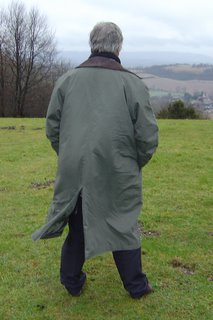
I am a bit mystified by Belgium and the Belgian people. It’s not that I’m totally dismissive of them (like Jeremy Clarkson), I simply cannot get my mind round them.
Why, for instance, do they have to speak in about six languages?
The man in the petrol station at Knokke-Heist last Friday morning greeted me with a torrent of Flemish, or it might have been Walloon, or Dutch even. I guessed that he was saying
“Brrr! Bloody chilly for the time of year, isn’t it? It’ll probably snow later. Is that pump number 4 you are paying for? That’ll be fifty euros. And can I interest you in our special offer on Belgian truffles?”
I replied confidently with a torrent of English.
“Yup, bloody cold. I hope you take Mastercard and, by the way, you can stuff the truffles”
Rather to my surprise the man was happy with this response and continued to address me at length in whatever language he was speaking.
Stopping later at a motorway service area I spotted Dag Soep chalked on a menu board. Visions of Bull Terrier Bisque (Korean-style) came instantly to mind and I decided not to risk it. Later I learned that this translates from whatever language as ‘Soup of the Day’, but I suspect that it would probably still consist of some form of canine consommé.
Another Belgian slogan on which I had to seek guidance was written large on hundreds of roadside posters. “I Love Bob” it reads and I reckon that the language is English. I later discovered that the “I Love Bob” campaign is a national drink-drive awareness thing – Bob being the person who sips tea and coffee while his mates get sloshed, and then drives everyone home. The Belgians also have a volunteer group whereby a bar can summon a man on a bike who will come round to the bar, take the car keys from the person who is too inebriated to drive, and chauffeur him home in his own car (free of charge). The choice of the English language for the Belgian national campaign was so that all the Belgians (the French speakers, Walloon speakers, Flemish speakers, etc.) could understand it.
Oh well, English may be the second language of Belgium, but I wish that the words “Thank You” didn’t translate into Flemish as “Dank U”. As is the case with the French word “Merci” it is generally understood to mean “Thank You, but No” as I discovered to my displeasure when a waitress offered to refill my wine glass. “Thank You” I replied smiling expectantly. But the waitress just walked away.
Anyhow the man at the petrol station was correct and it snowed and snowed that night. Saturday morning was spent shovelling the stuff off my car. It was cold enough to make me reconsider my concern about dog soup.

No comments:
Post a Comment